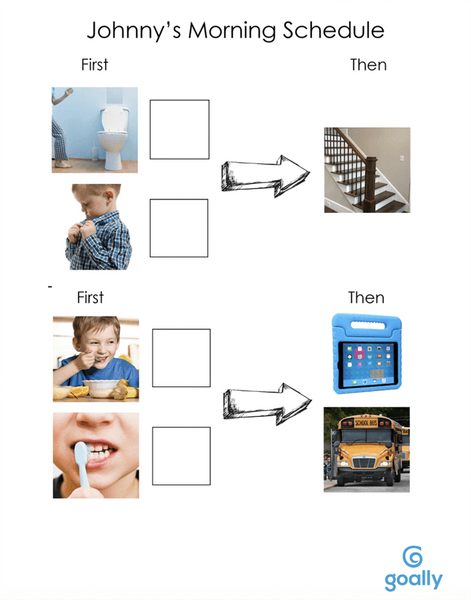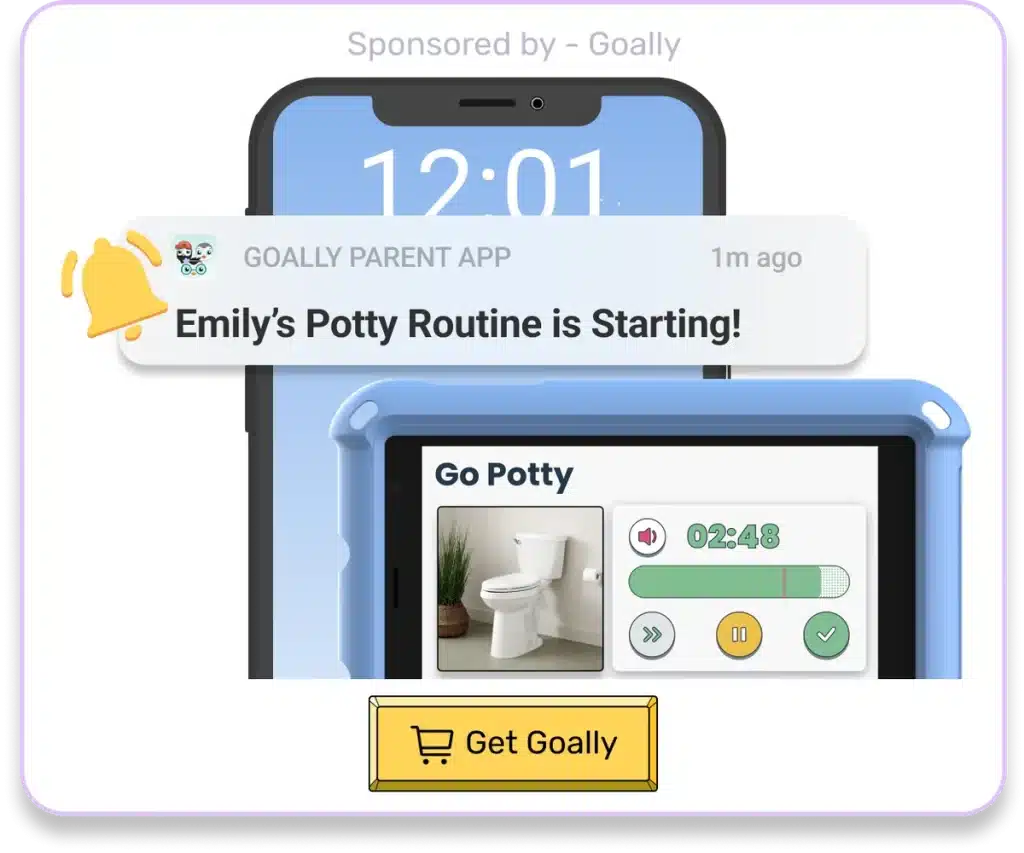Having a daily schedule is incredibly important for an Autistic child. We have talked previously about the importance of routines to your child as well as our tips to implement a daily routine. However, we have yet to lay out an example so that’s what we’ll be doing today!
Example of Daily Schedule for Autistic Child
While your child’s daily schedule will be unique to your family’s needs, the general framework is relatively universal.
Here is an example of a daily schedule for a child with autism who does not yet attend school:

| Time | Home Schedule | School Schedule |
|---|---|---|
| 7:00 AM | Wake up | Wake up |
| 7:15 AM | Brush teeth | Brush teeth |
| 7:20 AM | Get dressed | Get dressed, eat breakfast, head to school |
| 8:00 AM | Eat breakfast | Arrive at school |
| 9:00 AM | Therapy | School activities |
| 11:00 AM | Free time | – |
| 11:30 AM | – | Therapy |
| 12:00 PM | Have lunch | Have lunch |
| 1:00 PM | Play outdoors | School activities |
| 1:45 PM | Snack time | – |
| 2:00 PM | Craft time | – |
| 3:00 PM | Free time | After School activities |
| 3:30 PM | – | – |
| 4:30 PM | – | Head home or catch bus |
| 5:00 PM | Eat dinner | Eat dinner |
| 6:00 PM | Screen time | Screen time |
| 7:00 PM | Bath time | Bath time |
| 7:45 PM | Brush teeth | Brush teeth |
| 8:00 PM | Bedtime | Bedtime |

Read more: Kids Morning Routine Chart
Tracking Progress of Routines
Understanding a child’s progress is incredibly important. Luckily, daily routines make progress tracking very easy. Each task in a daily routine can be considered a goal. And each goal has several micro-goals linked to it. One goal leads to the next. Not only does this tiered routine tracking help parents stay organized in the midst of their own busy schedules and easily ascertain areas that might need greater attention, but it also can provide positive reinforcement to the children on an ongoing basis and gamify the routine.
This concept of gamification is particularly useful. While not much really changes with the routine itself day-to-day, the achievements do. They are a clear sign of progression and can encourage children to engage. So in that sense, a daily routine can be treated as a game that parents and their children play together. When you look at it like that it doesn’t seem so monotonous after all.
Goally | Routines that Actually Work
Goally’s skill building tablet for kids has routines that break down large tasks into small, achievable steps. It helps kids complete their tasks independently!

Create custom routines with your own videos & pictures for every step. The steps come in small, bite-sized pieces to help your child learn the little fundamentals (like putting the toothpaste on their toothbrush!) to achieve bigger goals. And that’s just the beginning. See it in action:
In conclusion, implementing a daily schedule is crucial for Autistic children, providing structure, routine, and a sense of security. While the specific activities may vary depending on the child’s needs, an example schedule can serve as a helpful guide. Tracking progress within the routine not only helps parents stay organized but also gamifies the experience for children, turning it into an engaging and rewarding game. Celebrating achievements and milestones along the way can provide positive reinforcement and motivate children to actively participate in their daily routines. By viewing the daily schedule as a collaborative game, parents can create an enjoyable and meaningful routine that supports their child’s growth and development.
This post was originally published on 01/01/2021. It was updated on 12/29/2023.

Goally
We help parents teach their kids life skills, like doing bedtime and morning independently. Backed by science, we incorporate evidence-based practices and expert-informed designs in all of our apps and content.






